The following are Steven’s unedited thoughts on Church power and dominion.
.
Monday, March 25, 2019
Part One
As anyone with half a set of computer skills can tell you, pressing the Alt, Control, and Delete keys at the same time allows a user to get out of frozen programs and unfortunate cyber situations, lets us end tasks and even reboot the computer. It’s kind of a technological “never mind” that starts the processors all over again.
After years of chasing inquiries and concepts down theological rabbit holes, and in the face of the continued clerical denials and concealment regarding recent revelations within the religious hierarchy, that’s about where I am with the Catholic Church.
A computer is a machine. It is merely a high-speed idiot that does what it is told to do, not necessarily what the user wants it to do. The machine is controlled by computer code, the “software” loaded into the machine. At the heart of the software bundles loaded onto modern machines is the operating system that controls all of the basic functions of the computer and allows everything else to work. The most common computers for home and office use are based on Windows or Apple systems, quite similar in appearance and functionality despite the allegiance shown for one or the other.
As computers evolved, we wanted to do more and more with them. As the set of demands increased, the complexity of the software to perform these tasks had to increase. That in turn demanded more capable, faster machines. As the machines improved, the software did too, and so the demands on machine capability increased further, a cycle of mutually stimulating hardware and software development now common. Memory requirements increased exponentially, processor speeds escalated, storage capacity skyrocketed, and transportability technology advances progressed from large floppy disks to small disks to CDs and now high-capacity flash drives.
The rise of computers enables so many things that we take for granted these days. High-speed communications, electronic banking, streaming television, medical innovations, international policing, fly-by-wire aircraft, cell phones and smart watches are all a function of computer technology. In general, civilization is much better off for the introduction of computers. It is not necessarily a comfort to many people that the machines appear to control so much of our society, however.
There’s a dark side, of course. We had to develop security systems and encryption to keep hackers and thieves at bay. The technology was just as useful for drug lords, gun runners and human traffickers as for the common person. Just as we learned to lock our cars, we had to learn to lock our computers. Folks learned to jimmy locks, so we added car alarms and devices to disable ignition systems to thwart car thieves. Now we have a complex of passwords, fingerprint readers, and facial recognition to keep miscreants out of our data. And we invented phone blocking systems to fight off the robo-callers.
That’s the way it always has been. Stone knives and spears developed for hunting were used as weapons between rivals. Fireworks used for Chinese holiday celebrations gave us gunpowder for guns and bombs. Our first tool, fire, evolved into napalm and flamethrowers. We looked into the sun and saw nuclear bombs. The list is endless. The key is the intent of the human user, good or evil.
Sometimes those complex operating systems don’t work as well as expected. The Windows ME system is an example of promising too much and delivering too little with incompatibilities and functional errors that required it be replaced rapidly. Sometimes the software initially works just fine but develops errors, fails to work as originally delivered, and the operating system has to be reloaded.
Computer science seems to parallel the Church in many ways, except for the speed of evolution.
The Catholic Church is the world’s largest corporate entity. It is a for-profit organization with untold wealth and property holdings around the globe. Managing this complexity requires thousands upon thousands of administrators, lawyers, supporting staff, and technicians. It has developed a highly structured authoritarian bureaucracy with absolute power over its assets. Think of the clerical empire as the “operating system” for the Church with the Vatican as the core central processor.
Just as the machine language calculations and functions that make a computer work are obscure or a mystery to most of us, so too are the negotiations and political maneuverings within the Church’s hierarchy. We are part of a bottom-up organization that supports the top of the pyramid. The computer parallel continues. Subordinate routines do what they do, but it is the higher level routines that know about every routine that they supervise. Only the highest level routines have the complete picture of everything that is being processed. And, of course, the higher level routines are the most powerful since they control everything below them.
In the case of the Church, we have to add human behavior and organizational practices. The clergy are humans and have all of the foibles and failings of humans despite their vows and initial good intentions. To varying degrees, there is the need for safety and security, the need for affiliation and love, and the need for recognition and power. As one moves up the Church hierarchy, knowledge and understanding of how things really work increases. So too does privilege and luxury and opportunity. These men need to control the subordinate organization in order keep the Church’s system stable and predictable.
In any organization, information is power, so the mysteries of the Church’s “operating system” are wrapped in intentional secrecy. Keeping knowledge in the hands of a few insures that these men will retain their power and control over the organization. And along with it their status and benefits.
The key word here is “control.” The masses of the faithful have to be controlled. What and how they worship must be kept within the bounds of official orthodoxy in order to maintain the Church’s integrity and to insure its continued survival as an entity. They must be kept dependent on the clergy for their guidance, dependent on them as vehicles to forgiveness for their sins, for dispensation of the sacraments necessary for their souls to attain heaven, and as their official conduits to God. And they must contribute to the wealth of the Church.
Religious callings are considered “service” vocations. The reality is that the people of the church exist to serve the hierarchy’s needs rather than the hierarchy really being committed to serve the needs of the faithful. It is just how subordinate processes in a computer work to feed the needs of the higher routines.
The cloak of secrecy provides for concealment of other abuses, more than just the sexual ones of the current period. Recall the sale of indulgences and how that led to the Protestant Revolution. But sexual abuses are far more personal, violate the human spirit as well as the person. And the abusers were the beneficiaries of the cult of secrecy, moved from place to place while continuing their abuses, and no one was held accountable. Doubtlessly they were repeatedly forgiven for their sins—by other priests, but certainly not by their victims. All to protect the mother Church, and the power it afforded those in charge, and the control over those who supported it.
Side note: male control over females must end. Just as the US military has opened all jobs to females, so must the Church. “Catholic” means universal, and it’s time we embrace that fully. The servants of the people need to be just that, and the laity needs to be part of the management team.
It’s time for the Church to hit Alt – Ctrl – Delete. And rather than merely rebooting what we have, we must get a new operating system. Ironically, it should be called “Windows” since it must have full visibility to all of the processes in place. The only mysteries should be those God follows, not those of humans.
Part Two
There are three things that differentiate humans from “lower forms of life.” First is a sense of the future and our own mortality; second is a moral code of some form; and third is a quest for understanding of a higher being that is instrumental in our existence. All human cultures have these characteristics, and they are inextricably tied together in the effort to insure individual and organizational survival and growth. They cannot be untwined, and efforts to do so are destined for failure. For example, the modern legal codes of most of the world derive from the Ten Commandments that are the core of the Judeo-Christian-Islamic (Abrahamic) religions. Separation of church and state means only that the state will not endorse one particular church, not that the state will create a logical and legal base that does not have roots formed by the major religions.
Voltaire pointed out that if God did not exist, we would have had to invent him. Unfortunately, in some ways, we (mankind) did just that. By deification of cultural evolutionary developments, we add a heavenly mandate to certain behaviors that have proven to be beneficial to human survival. Jewish Kosher prescriptions avoid the likelihood of contracting trichinosis from uncured pork products. Similarly, Islamic prohibition on the consumption of shellfish derives from the inability to maintain highly perishable foodstuffs in typically hot climes. Marriage is a social invention to tie promiscuous males to pregnant females so the woman and child do not become a burden on the society. Catholicism further elevated the last to sacramental status and threatened eternal damnation to those who did not participate. Humans tend to make sound social policy holy. It’s much harder to ignore or disparage lawmakers when the writ is God’s.
In the Catholic Mass, the First Reading is usually from the Old Testament of the Bible, and the Second Reading is typically from one of the non-Gospel books. At the end of these readings, the Lector solemnly states that this is “The Word of the Lord.” Really? You mean that a flaming finger from heaven engraved these words in stone for us like God did in Charlton Heston’s movie? Ummm, no.
The Old Testament books are human words. They provide historical records plus a codification of cultural wisdoms. They offer the perceptions of the many authors on how to extricate themselves from oppression, slavery, and debauchery. And then they were provided with the cachet and credibility of “God’s revelation.” Certainly the writers were more fervent in their beliefs and observances than most within their societies, but are their dreams and fasting-induced hallucinations any more meaningful than yours?
Both Old and New Testaments are the products of oral tradition. Although some of the events related to Moses may have taken place as far back as 3500 BC, there were no written versions of these records until that was begun under King Solomon in 950 BC. Similarly, there were no contemporary written records of Jesus life and sayings. The Gospels and other books of the New Testament were written after the fact, often by persons unknown who afforded authorship to more famous individuals to promote readership and afford credibility.
Oral tradition… Ever play that game where something is whispered to one person and then repeated around a circle with the last person announcing out loud what was passed on? It rarely resembles what any of us heard. We laugh. It is used as an exercise to demonstrate how unreliable our memory is. Think about doing that over thousands of years. Care to be on accuracy?
Most biblical scholars agree that the Gospel of Mark was written about 66-70 AD, Matthew and Luke approximately 85-90 AD, and John between 90 and 110 AD. The actual authors were not the Apostles after whom the books are named, and they are almost certainly composites of stories passed down by actual witnesses.
Paul was converted after Christ died, so his writings are obviously based on the testimony of others (again, oral tradition, and thus not necessarily specific or totally accurate).
And in regard to oral tradition, the original stories were no doubt subject to the addition of embellishments and interpretations and mystification. When these were finally written down, copies (which were done manually by literate scribes) were probably similarly modified by editing, further interpretation, and even sensationalism.
It appears that the Gospel of Mark was written for Romans, Matthew was directed at the Jewish population, and Luke was intended for the Gentiles. Each had a spin and style that would appeal to those audiences. John’s Gospel is more spiritual than the others and appears to be a testimony to Jesus’ status as God, a subject generally not emphasized in the other Gospels.
So what started me down the path of examining the origins of Biblical writings?
To start with, I cannot tolerate Creationists who deny evolution and insist that every word in the Bible must be taken as literal truth. It not only fails my sanity test, but it fails every scientific and sociological inquiry into the topic. Next, there are two specific anomalies in the Gospels that caused me to recognize there is a disconnect between what Jesus was supposed to have said and reality.
First, contemplate Jesus’ directions for us to “take up our cross and follow after him” (paraphrased; c.f. Matthew 10:38, Mark 8:34, Luke 9:23, Luke 14:27). That would have been confusing and with little meaning to the Apostles had he said that before his crucifixion. But after the horrors of the Via Dolorosa and his death on the cross, these words have tremendous
impact and convey intense meaning and imagery to believers, both then and now. So, I’m positive those words were never spoken by Jesus but were attributed to him well after the fact by authors attempting to have an influence on their listeners/readers.
Second, I have problems with Jesus saying, “And so I say to you, you are Peter, and upon this rock I will build my church” (Matthew 16:18).
How could Jesus say that? There was no such thing as a “church” in Jesus’ day. The Greeks and Romans had temples. The Jews had temples and synagogues. But there were no churches per se. Turns out that the word “church” comes from the Old English word cirice (Old English is believed to have originated in about 450 AD after the Romans were expelled from the British Isles). The word used originally in the Gospels is the Greek ekklesia, literally meaning “called out.” It was used in the First Century AD to refer to the early Christian assemblies that gathered to practice their developing religion. Ekklesia was the word originally used when the Gospels were written (Greek was the language of scholars, not the Aramaic that Jesus spoke). Translations over the centuries give us our English version of “church.” But regardless of the word, the very concept of this kind of gathering did not exist when Jesus was alive, so Jesus could not have spoken these words. This phrase too was attributed to him after the fact in order to provide absolute justification for early Christian actions in assembling against the directions of the Romans.
So, when the Priest or Deacon concludes the reading of the Gospel passage in the Catholic Mass, he solemnly states, “The Gospel of the Lord,” and the congregation dutifully responds, “Praise to you, Lord Jesus Christ.” And we all do this as if we were actually hearing the words that Christ spoke. Nope.
We’re hearing the result of a team effort to create what they wanted attributed to him for the maximum effect on the listener/reader. They amassed witness recollections (more likely second- or third-hand retellings) of his actions and personal behaviors then added a dialoged script to it. There must have been a reasonably accurate recollection of some of his words (such as the Beatitudes), but I suspect most of it was poetic license.
Actually, I don’t have much of a problem with this. The message is the right one and, even if the specific words are not those of Jesus, the context and the intent are valid so I’m good with it. I’m also okay with the inspiration of the prophets and historical story-tellers and scribes in keeping and passing on the source materials for today’s Bible. If it’s been tweaked along the way, too bad, but it’s still pertinent.
Where it goes wrong for me is that this is all sold as factual and accurate. It is neither. If challenged, we are asked, “Would God lie?” That is not a good response. The Bible is a very valid philosophy and the best credo for life known to man, but it is not a literal recording of events that took place. Priests and Deacons spend countless hours in theological studies and learning Church history, so this is certainly known to them. Why is it threatening to share the reality of the writings with us? Do they believe that it will erode the Church’s power base or control over the faithful for us to know that the Apostles did not take notes and rush home to transcribe them after going fishing with Jesus?
Yeah, they do.
The Catholic Church has even tried to put spin on when the Gospels were written. The great Temple in Jerusalem was burned by the Romans in 70 AD. This was a very public and highly traumatic event for the Jews of that time. The sacred status of modern Israel’s Wailing Wall testifies that it remains so today. Although Jesus and all of the Apostles were good Jews, none of the Gospels has any mention of that milestone in Jewish history. Similarly, none of the Gospels mentions the intense persecution of Christians in Rome by Nero that started in 64 AD. The Catholic Church uses these omissions to “prove” that the Gospels were written earlier than is the consensus of scholars. And, because they were written earlier, the Church can also claim that they were actually written by the Apostles whose names they bear. In turn, they then state they are the accurate records of eyewitnesses and participants in the events of Jesus life.
However, the Gospels are different spins (remember they had different target audiences) on the life of Jesus Christ, a life which ended three decades before Nero’s persecution and almost four before the Temple was destroyed. Why would his life story include the later events which were not pertinent to the story being told? The Church is trying to establish a credibility where it makes no difference.
Over the millennia, rulers have used the teachings of the prophets when it was beneficial for their control over the population. When the messages were unwelcome, the prophets were harassed, exiled, discredited, or executed. I am reasonably confident that prophets were manipulated into producing prophecies that gave God’s “official endorsement” to the intentions of the rulers. Let us not forget that many of the books were actually written down hundreds or even thousands of years after the fact. It’s fairly easy to make retroactive predictions.
I am not discrediting the Bible. But I believe that prophetical predictions were swayed by actual historical events (retroactive predictions) and that there are many more failed prophecies that do not appear. Still, and as stated before, there is no greater source as a guide for ethical and responsible societies and individuals than the Bible.
But I am discrediting what I now see as a blatant effort by the Church to manipulate the faithful by wanting us to believe in the literal accuracy of liturgical documents that are spiritually relevant but factually an amalgam of various individuals, most of whom were not actual observers of or participants in the events of Christ’s life. The real sources are immaterial to the message, so why do we stand at the ambo and insist that these are the exact words of ancient prophets or of Jesus Christ?
Control. Tt’s always about control.
The Church is in charge, and the Church is always right— we do have that infallibility thing (a charism imposed by Christ on the entire Church as a whole, according to official dogma). Remember that control also means requiring financial support from the same faithful.
As stated earlier, power also derives from control of information. Secrecy is the Catholic Church’s engine that drives power and control. Add to that the smokescreen of “only the clergy being properly educated to understand the intimate details of Catholicism and Jesus’ teachings,” and we can wrap the whole thing in mystery and indecipherable sanctity that “the laity is just not capable of understanding.”
Horse hockey! We’re smarter than you think, and we can handle it.
I’ll continue my service as Lector, but I’ll do the readings with a different understanding of what I say and how the message should be applied to our lives. I’ll read with the understanding that the words are not what Jesus said but represent what God desires. I’ll also read with the knowledge that there has been a two thousand year conspiracy to obscure the reality of what is recorded in the greatest document in mankind’s history.
None of this affects the legitimacy of the example Christ gave us. The Gospels provide a probably not-so-accurate recount of a life that we should be imitating. The paraphrasing of what he may have said or what the authors thought he should have said gives us perfect guidance on forgiveness and compassion and love and how we should treat our fellow human. The parables still are great tales of morality and paint superb mental pictures of how God’s word takes root in some of us. The precision of the record matters not a whit.
As the largest for-profit corporation on earth, the Catholic Church thrives on the backs of 1.2 billion faithful, many of whom exist in dire poverty. Countless millions should be receiving largesse from the Church, not contributing to it. The Church has sequestered misbehavior and criminal activity behind a cloak of secrecy, and it endows its hierarchy with privilege and power that is abused over and over without legal recrimination.
The living tree that is the Catholic Church may be diseased, and some of the fruit may be rotten, but the seed is still good. So stop trying to baffle me with bull.
Start dazzling me with brilliance. Otherwise, I’ll simply hit Alt – Ctrl – Delete.
.
© Deli Lanoux, Ed.D. and Shared thoughts…, 2024. Unauthorized use and/or duplication of this material without express and written permission from this blog’s author and/or owner is strictly prohibited. Excerpts and links may be used, provided that full and clear credit is given to Deli Lanoux, Ed.D. and Shared thoughts… with appropriate and specific direction to the original content.






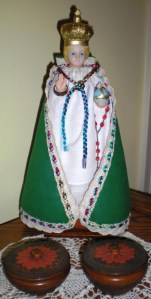


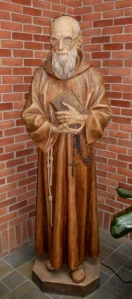
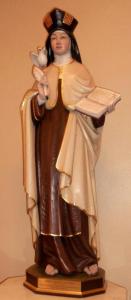

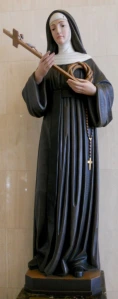


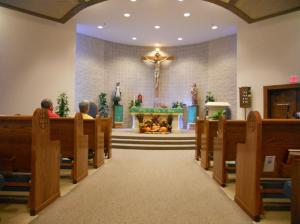
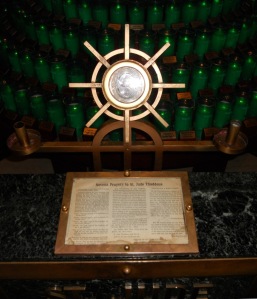









Leave a comment